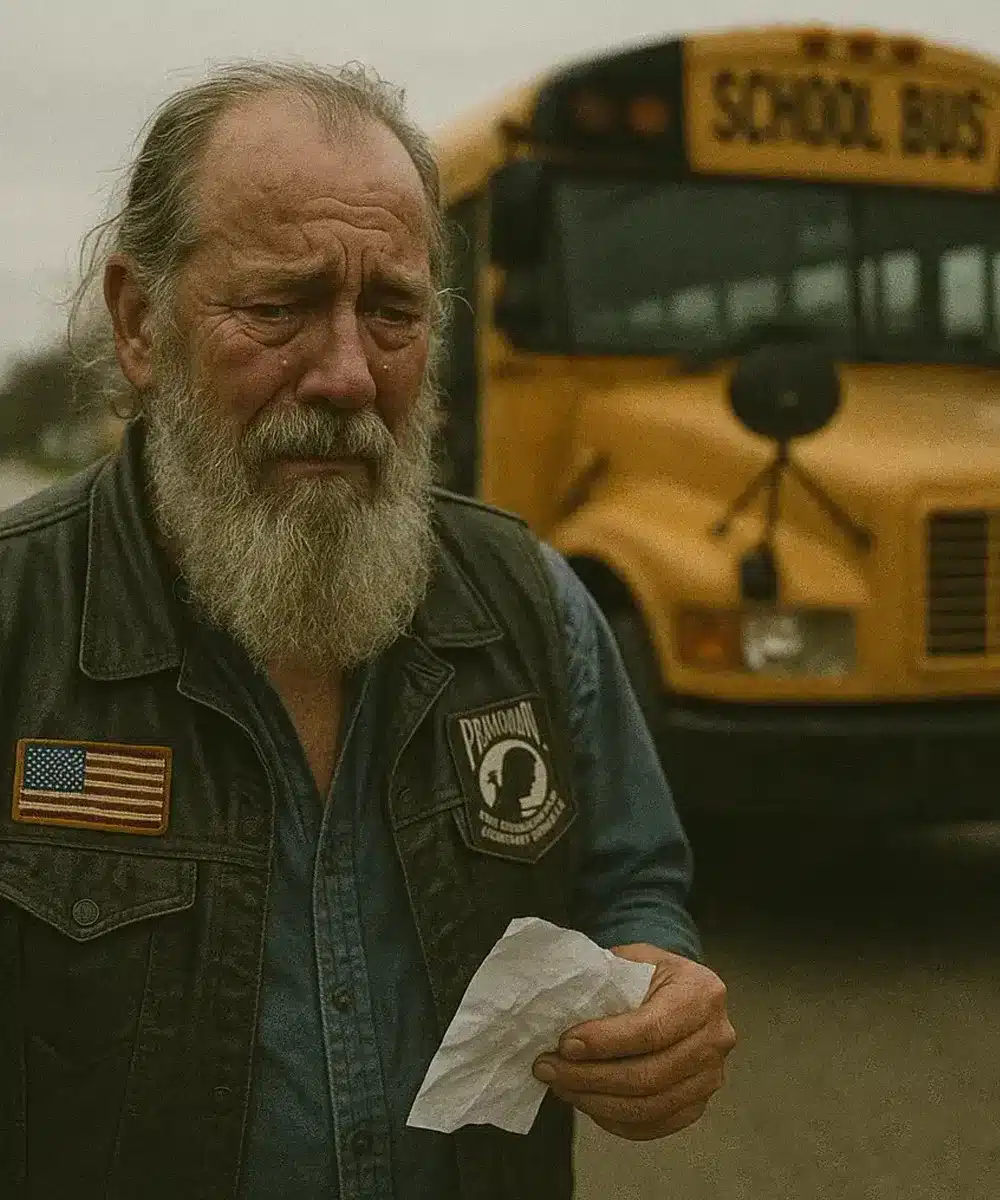Ray Mercer had driven a school bus for 42 years without a single accident. He knew every student by name, calmed nervous kindergartners, and even organized charity rides for veterans. But one month before retirement, he was suspended—because a parent saw him wearing a leather vest at a motorcycle rally and called him dangerous.

The school didn’t hesitate. Principal Hargrove, who had worked with Ray for years, placed him on leave without even asking for his side of the story. No one cared about his spotless record or the lives he’d touched. All that mattered was a stereotype. Ray, crushed, wondered if his entire career had been erased by a single photo.
But then, his students—past and present—spoke up. A journalism student who remembered Ray’s kindness wrote an article revealing the truth: his motorcycle club wasn’t a gang; they were volunteers who helped veterans and disaster victims. Parents who had trusted him for decades demanded answers. Students staged a protest, and soon, the school board had no choice but to reinstate him.
Ray’s final month was a celebration. He rode his Harley to work, taught kids about bike safety, and retired surrounded by his biker friends—many of whom were doctors, lawyers, and veterans. At his farewell party, a former student, now a Marine, said, “You judged these men by their jackets, not their deeds.” Even the parent who reported him apologized. As Ray rode off into the sunset, he left behind a lesson more valuable than any school could teach: true character isn’t seen—it’s proven.


